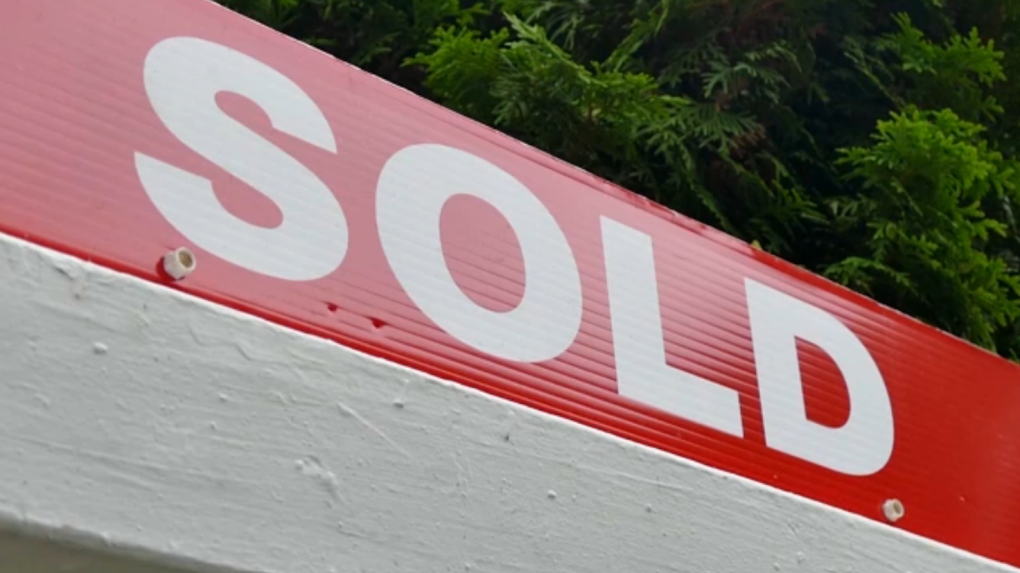B.C.'s home flipping tax draws mixed reviews

B.C.'s proposed legislation targeting housing speculators is being met with mixed reviews and some skepticism that it will impact affordability.
On Thursday, during the premier’s 2024 budget announcement, a new B.C. Home Flipping Tax was revealed. If passed, beginning Jan. 1, 2025, any profits made from the sale of a residential home within two years of buying it will be subject to the tax – with exceptions.
According to the province, the tax rate will be 20 per cent for income earned from properties sold within the first year, gradually declining to 10 per cent if sold after 18 months, and further reducing to zero after two years of ownership.
Ryan Dash, a principal with The Vancouver Real Estate Group, said he’s not convinced another tax is what the province needs to address the housing market’s low inventory.
“I just don’t know how this has the desired outcome, when, at the end of the day, we need to stimulate and incentivize people to build more and put more homes on the market,” he said.
Dash said while he appreciates the intention behind the tax, he believes it’s too late for it to make a tangible difference.
“None of these changes overnight are going to make any kind of significant impact,” he said. “It’s got to be part of a much bigger, broader plan – a 15 or 20 year plan.”
Skepticism around affordability
Tom Davidoff, an associate professor at UBC’s Sauder School of Business said when it comes to affordability, he doesn’t believe the tax will bring housing prices down.
Instead, he said he believes the initiative may be a way to legitimize the supply actions the government has taken recently, such as introducing legislation aimed at spurring the development of small-scale and multi-unit homes, and designating transit-oriented development areas.
”I think the flipping tax is not important at all for long-run affordability, but it may be important to provide political cover because there are some people – maybe lots of people – who don’t want to see their neighbourhood densify and believe that British Columbia is expensive not because of an absence of homes for people looking, but rather because of speculation or various nefarious investment forces,” he said.
‘It’s going to take time’
Tony Gioventu, the executive director of the Condominium Homeowners’ Association of B.C., said any measure to quell flipping is positive.
“I think from the public's perspective, this is a good benefit,” he said. “Investors who are accustomed to house flipping for investment returns, they’re going to have to re-evaluate how they do business.”
In particular, he said the tax could deter people using real estate for capital investment.
“I think it will change and probably slow down how housing speculators function in the province,” he added.
Gioventu told CTV News he’s heard of a number of issues involving people renovating properties in condo buildings or strata developments, with the intent of flipping them months later.
“It’s a huge detrimental impact on condo communities and townhouses,” he said. “People go in, they remove structural walls, they create problems for all the adjacent units and then they’re gone in six or eight months.”
Whether the tax will have a substantial effect on the housing market, Gioventu said “it’s one piece” of a puzzle to address the crisis.
“We transitioned from the importance of housing for families into the importance of housing for commodities and investments,” he said. “We’ll see a transition from that at some point but it’s going to take time.”
CTVNews.ca Top Stories

'We are declaring our readiness': No decision made yet as Poland declares it's ready to host nuclear weapons
Polish President Andrzej Duda says while no decision has been made around whether Poland will host nuclear weapons as part of an expansion of the NATO alliance’s nuclear sharing program, his country is willing and prepared to do so.
Deadly six-vehicle crash on Highway 400 sparked by road rage incident
One person was killed in a six-vehicle crash on Highway 400 in Innisfil Friday evening.
Invasive and toxic hammerhead worms make themselves at home in Ontario
Ontario is now home to an invasive and toxic worm species that can grow up to three feet long and can be dangerous to small animals and pets.
Harvey Weinstein hospitalized after return to New York from upstate prison
Harvey Weinstein’s lawyer said Saturday that the onetime movie mogul has been hospitalized for a battery of tests after his return to New York City following an appeals court ruling nullifying his 2020 rape conviction.
Central Alberta queer groups react to request from Red Deer-South to reinstate Jennifer Johnson to UCP caucus
A number of LGBQT+2s groups in Central Alberta are pushing back against a request from the Red Deer South UCP constituency to reinstate MLA Jennifer Johnson into the UCP caucus.
Opinion I just don't get Taylor Swift
It's one thing to say you like Taylor Swift and her music, but don't blame CNN's AJ Willingham's when she says she just 'doesn't get' the global phenomenon.
Sophie Gregoire Trudeau on navigating post-political life, co-parenting and freedom
Sophie Gregoire Trudeau says there is 'still so much love' between her and Prime Minister Justin Trudeau, as they navigate their post-separation relationship co-parenting their three children.
First court appearance for boy and girl charged in death of Halifax 16-year-old
A girl and a boy, both 14 years old, made their first appearance today in a Halifax courtroom, where they each face a second-degree murder charge in the stabbing death of a 16-year-old high school student.
It's 30 years since apartheid ended. South Africa's celebrations are set against growing discontent
South Africa marked 30 years since the end of apartheid and the birth of its democracy with a ceremony in the capital Saturday that included a 21-gun salute and the waving of the nation's multicolored flag.
































